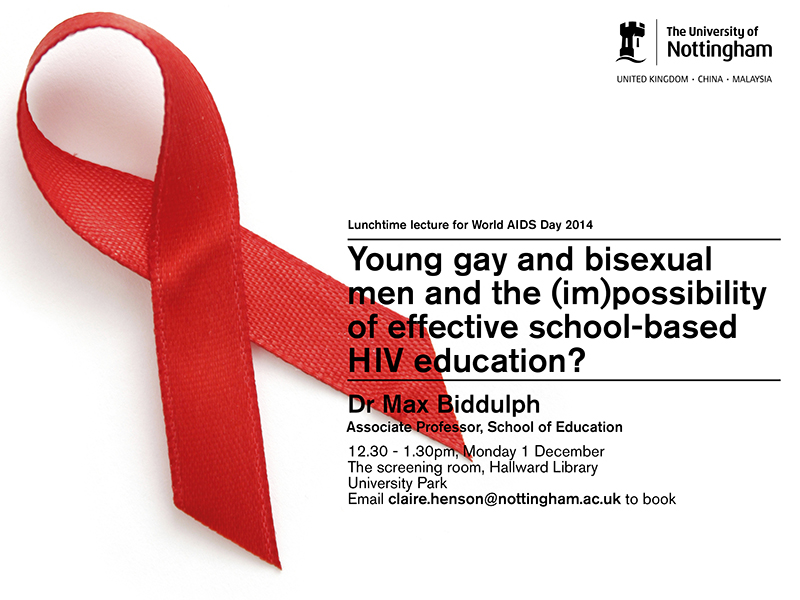Young men and the (im)possibility of effective school-based HIV education?

Reporting in 2014, Public Health England noted that:
‘in the UK men who have sex with men (MSM) are the group most affected by HIV and it was estimated that approximately 41,000 MSM were living with HIV in the UK by the end of 2012. Of these, 18% (7,300) were thought to be unaware of their infection. The steady increase in diagnoses of HIV among MSM is thought in part to be attributed to on-going transmission, as well as an increase in HIV testing. The number of new diagnoses among MSM has been greater than those among heterosexuals since 2011. In 2012 MSM accounted for over half (51%) of new diagnoses of HIV. These factors along with their position as the group with the highest levels of transmitted antiviral resistance (9.8% in 2010) provide cause for concern’.
The UK’s strategic response is well documented and national HIV prevention planning frameworks make explicit the behaviors that need to targeted by all forms of sex and relationships education (SRE), in both formal and informal settings. Given this strong foundation it could be anticipated that younger MSM who are either in, or recently left the school system, should be well informed about the risk of HIV infection. The actual situation on the ground reveals quite a different picture however, and this lecture aims to explore some of the blocks and challenges in delivering effective HIV education in school settings. Three key challenge areas will be examined:
• Status of SRE, availability and access: inclusion and provision
• Quality and precision of information
• Educator professional development
A future more optimistic scenario is imagined, in which this pandemic described by the World Health Organisation as the most damaging and destructive in human history, is met by a more respectful and robust response in school classrooms.
Leave a Reply
Upcoming Events
Free webinar: How to grow your ‘growth mindset’
25 April 2024


